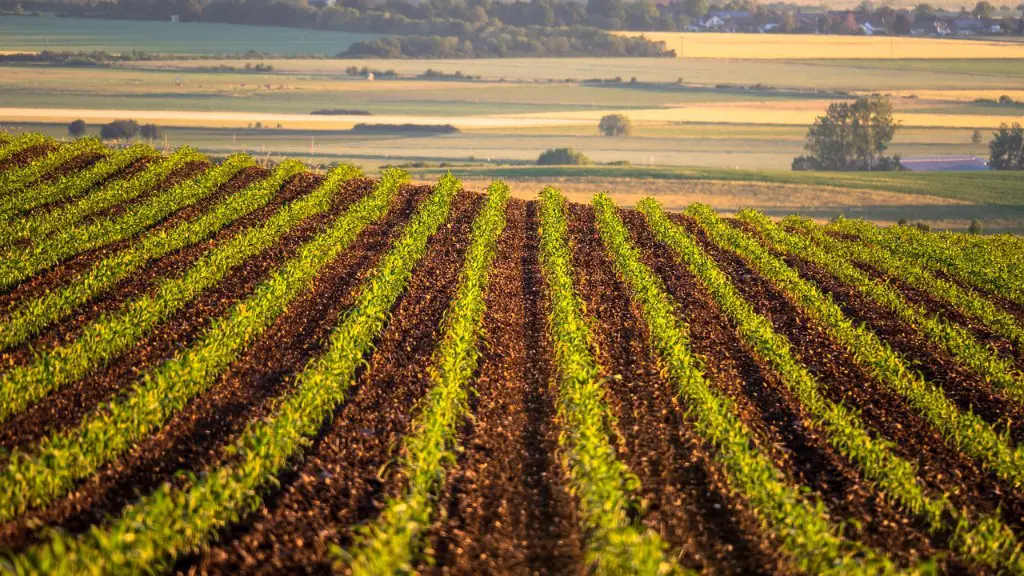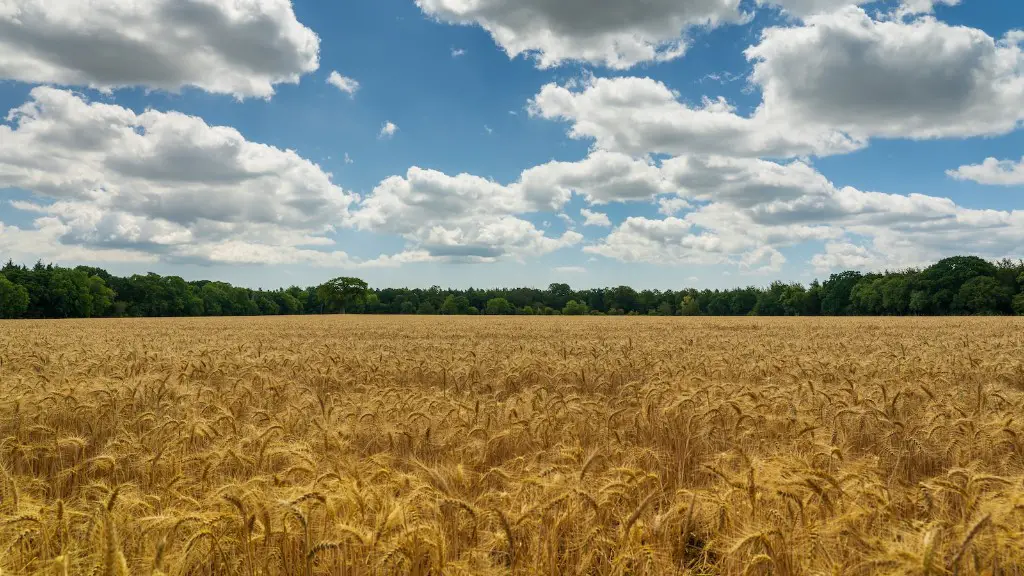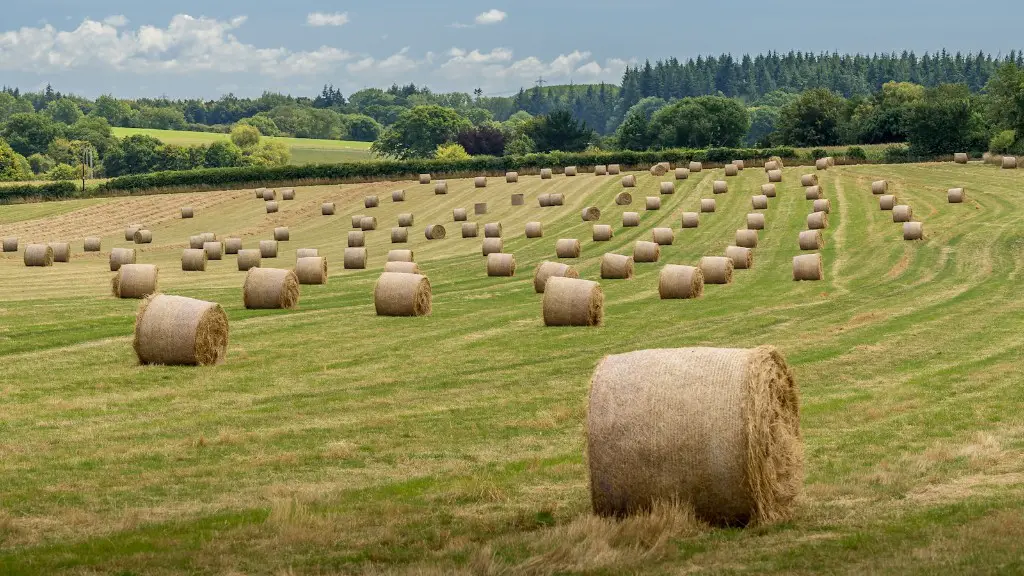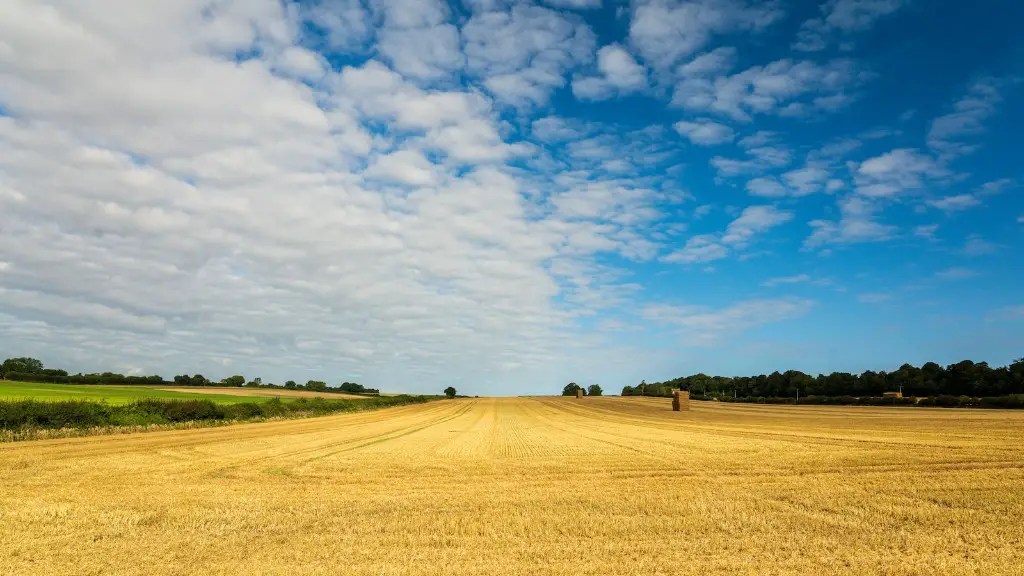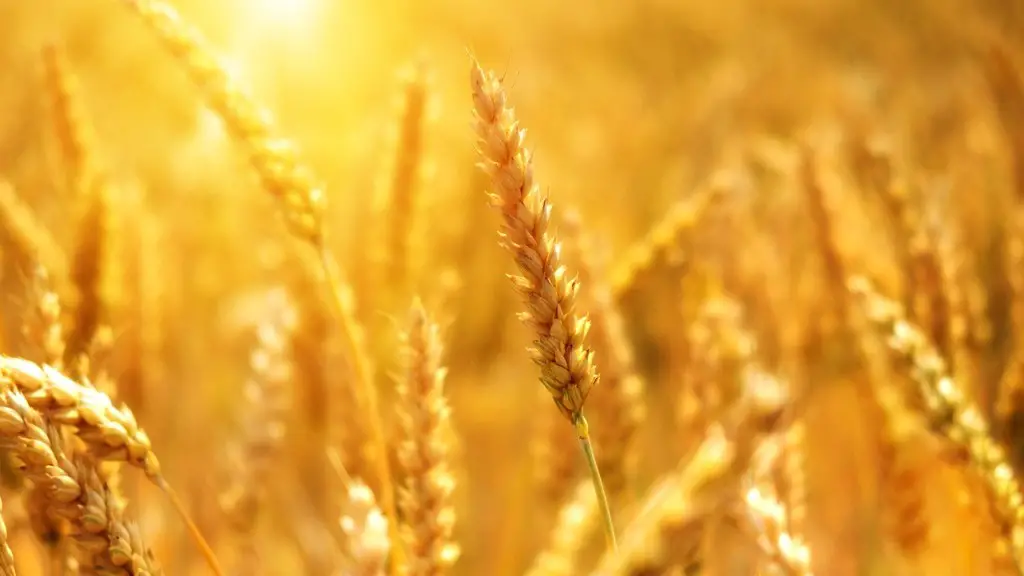Agriculture plays a vital role in the Australian economy and is a key driver of regional development and jobs. The sector generates around $155 billion in annual production and employs more than 1.6 million people across the country.
Agriculture is also a significant contributor to Australia’s export earnings, with around two-thirds of farm production being exported. The sector is a major supplier of food and fibre to the world, and is a key player in global food security.
There are many reasons why agriculture is important to Australia. Agriculture is a major industry in Australia, contributing to the country’s economy. Agriculture is also a major source of employment in Australia, with many people employed in the industry. Agriculture is also a significant producer of food for Australians, with the country’s agricultural sector supplying a large percentage of the country’s food needs. Additionally, agriculture plays a vital role in Australia’s environment, with the country’s agricultural land providing a significant amount of the country’s environmental protection.
What is the most important agriculture in Australia?
The main agricultural products in Australia are cereals, grains and legumes. Wheat is the most important cereal crop, but it requires a large amount of land to grow. The yield of wheat in Australia has been around two metric tons per hectare for many years. Other important crops include barley, oats, rice and maize. Australia is also a major producer of wool and beef.
The agricultural sector is a critical part of Australia’s economy and community. It employs over 25 million people and contributes $73 billion to the economy. The sector is also responsible for providing food for the country, and for maintaining the health of our communities.
What is the value of agriculture to Australia
Assuming that this is in reference to the value of Canadian crops:
The value of Canadian crops is expected to increase in the 2021-2022 season. This is due to increases in the prices of wheat, canola, and barley. The total value of these crops is estimated to be $131 billion, which is a 33% increase from the previous season. Canola is expected to see the biggest increase, with a value of $60 billion, which is a 105% increase from 2020-2021.
Australia is a leading producer of wool and wine and an important source of grains, meat, sugar, dairy products, and fruit worldwide. The country’s agricultural sector is highly productive despite serious challenges. Australia’s climate and soil are well suited to a wide variety of crops and livestock, and the sector is a significant contributor to the economy.
Does Australia rely on agriculture?
Agriculture is an important part of Australia’s economy, contributing around $60 billion annually. Around two thirds of Australia’s land area is used for agricultural production, with the majority of farms located in the eastern states. The sector employs around 300,000 people, with around half of these employed in rural areas.
The main types of agricultural production in Australia include livestock (such as cattle, sheep and pigs) and crops (such as wheat, barley, canola and cotton). Australia is a major exporter of agricultural products, with beef, wool, wheat and live animals being some of the nation’s most valuable exports.
The Australian government provides support to the agricultural sector through a range of initiatives, such as funding for research and development, drought assistance and subsidies for water and electricity.
Australian agriculture has become increasingly diversified in recent years, due in part to the country’s large tracts of arable land. This has helped Australia become a leading world exporter of grains, meats, and wool. The global markets for grains (particularly wheat and barley) and wool are both dominated by Australian exports.
What do Australians value the most?
Australian society values freedom and dignity of the individual, freedom of religion, commitment to the rule of law, Parliamentary democracy, equality of men and women and a spirit of egalitarianism that embraces mutual respect, tolerance, fair play and compassion for those in need and pursuit of the.
ABARES Insights: Opportunities from action on climate change
Some of Australia’s major agricultural exports are already relatively less emissions intensive than some major competitors providing scope for Australia to further its trade reputation as a reliable and sustainable producer.
ABARES is the Australian Bureau of Agricultural and Resource Economics and Sciences and their insights department has recently released a report on opportunities that could arise from Australia’s action on climate change.
The report notes that some of Australia’s key agricultural exports, such as beef and wheat, are already relatively less emissions intensive than competitors. This provides an opportunity for Australia to improve its trade reputation as a reliable and sustainable producer of these products.
The report also highlights other potential opportunities for Australia’s agriculture sector, including the development of new markets for low-emissions agricultural products and the attraction of investment in agricultural carbon abatement technologies.
Overall, the report provides a positive outlook for the potential benefits of Australia’s action on climate change for the agriculture sector.
Why is Australia so successful economically
Australia is consistently ranked highly in global indexes as a desirable destination to live, work, study and invest.
The country’s economic prosperity is built on strong foundations: good governance, open markets and the rule of law.
These factors create an environment that is conducive to business and investment, and helps to ensure that Australia remains a prosperous and stable place to live.
Australia is a great place to live! The economy is strong and it has been growing for more than 21 years. The unemployment rate is just 5.4%, which is really low. The country’s debt as a percentage of GDP is 10%, which is also really low. This means that Australia is a great place to live and work. There are plenty of opportunities for people of all skills levels.
What does Australia’s economy depend on?
Is Australia a good place for business?
Australia is ranked 14th out of 190 economies for the ease of doing business, according to the World Bank’s annual Doing Business report for 2020.
What is the major industry in Australia?
MiningThe major primary industries in Australia are mining, agriculture, forestry and fishing. Mining is a large industry in Australia and it continues to grow.
How much money does it cost to start a business in Australia?
It costs between $58 and $87 to register a business name in Australia. However, there are some free business name checkers available, which can make the process easier.
What can you not buy in Australia?
Here is a list of some of the things you can’t buy in Australia any more.Nacho cheese chips – kind of. … Books by Germaine Greer. … Books by Richard Flanagan. … Unsworth’s champagne. … Vegemite. … take-away pork ribs. … Kindygloves. … Solpadeine.More items…•
Is food industry a target industry in Australia?
The visual cues that target annual seafood consumption as industry and national expectation
Australia is an amazing country with a lot to offer! From its stunning natural wonders and wide open spaces, to its beautiful beaches and deserts, there is something for everyone to enjoy. And, of course, let’s not forget about “The Bush” and “The Outback” – two of Australia’s most iconic regions. If you’re looking for a vibrant, culturally-rich country to explore, then Australia is definitely the place for you.
What is important for Australians
Australia is a culturally diverse country with a strong commitment to freedom and respect for the individual. Australians value freedom of religion, speech and association, and the rule of law. These values are reflected in our Constitution and our Bill of Rights.
Australia is a developed country with a high standard of living. It ranks highly in several measures of well-being, including income, jobs, education, health, environmental quality, social connections, and life satisfaction. These assessments are based on available selected data.
Does Australia need more farmers?
The Australian Bureau of Agricultural and Resource Economics and Sciences is predicting a record production value for the second year in a row. The bureau is also reporting a shortage of about 22,000 workers across the country over the next quarter, with 16,000 of these in horticulture.
It is amazing that China is able to produce so much food considering they only have 10% of the world’s arable land. They are the leading agriculture producer of fruit, vegetables, cereals, cotton, eggs and poultry. This is a huge accomplishment and it is clear that they are doing something right. Keep up the good work, China!
What is the future of agriculture in Australia
The Agricultural sector in Australia is expected to see a continued rise in value in the 2022-23 financial year. Despite some setbacks due to intense rainfall and flooding in certain areas, strong production in other parts of the country will help support this growth. This is good news for the Australian economy as a whole, as the agricultural sector is a significant contributor to GDP.
Australia definitely has some great benefits when compared to the United States. The living standards are high and the cost of living and tuition is lower. Plus, it is a much safer country overall. If you are considering studying abroad, Australia is definitely a great option!
Warp Up
Australia is a country with a relatively small population compared to the size of the landmass. This means that there is a lot of space for agriculture, which is the main form of land use in Australia.
Agriculture is important to Australia because it is a major source of export income, it provides employment for a large number of people, and it helps to diversify the economy. Australia exports a wide variety of agricultural products, including wheat, beef, wool, and dairy products. Agriculture is also a significant employer in Australia, with around 1 in 12 jobs being directly or indirectly related to the sector.
Agriculture is a vital sector for Australia, contributing to our economy and providing employment for our people. It is a significant source of export earnings, with around 90% of production being exported. Agriculture also helps to ensure our food security, as we are able to produce enough food to meet our own needs and also have a surplus for export.
